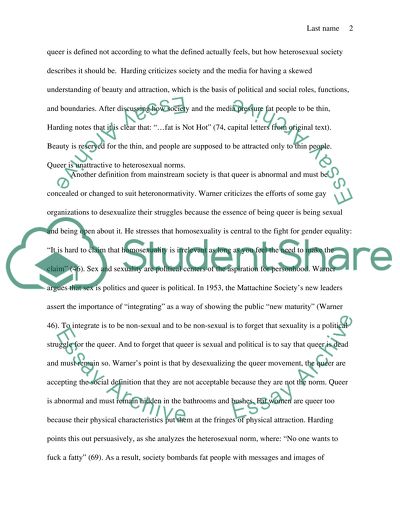Cite this document
(“Being Clear on What Is and What Should Be Queer. This Essay”, n.d.)
Being Clear on What Is and What Should Be Queer. This Essay. Retrieved from https://studentshare.org/english/1467178-what-is-queer
Being Clear on What Is and What Should Be Queer. This Essay. Retrieved from https://studentshare.org/english/1467178-what-is-queer
(Being Clear on What Is and What Should Be Queer. This Essay)
Being Clear on What Is and What Should Be Queer. This Essay. https://studentshare.org/english/1467178-what-is-queer.
Being Clear on What Is and What Should Be Queer. This Essay. https://studentshare.org/english/1467178-what-is-queer.
“Being Clear on What Is and What Should Be Queer. This Essay”, n.d. https://studentshare.org/english/1467178-what-is-queer.


